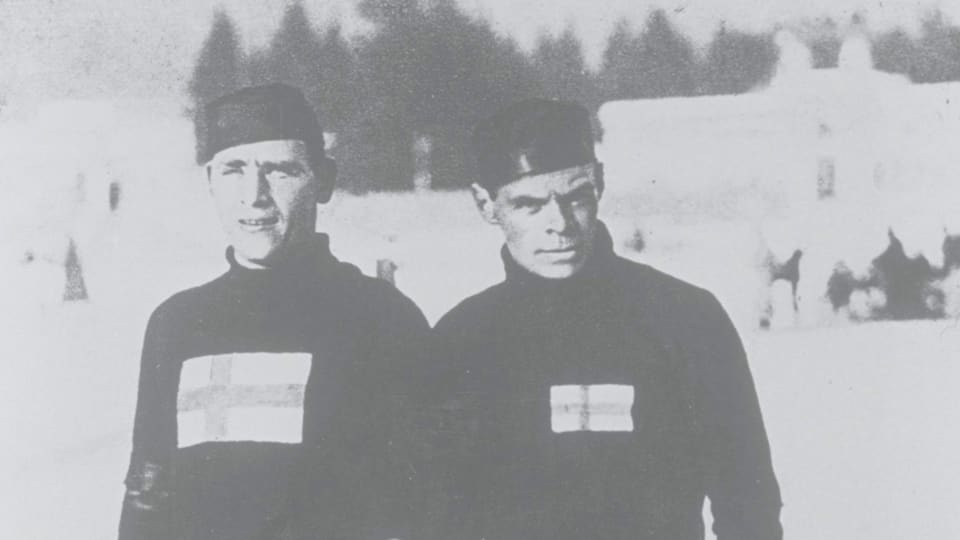
On the morning of 26 January, the first day of competition, the confident Finn finished third in the 500m, 0.80 seconds behind the winner, Charles Jewtraw. Then, in the afternoon, he put in a commanding performance in the 5,000m, clocking in at 8:39.00, almost nine seconds ahead of compatriot Julius Skutnabb. Norway’s Roald Larsen, a further two seconds behind, was third.
The next day, Thunberg was drawn with Larsen in the 1,500m. The pair competed against each other so ferociously that they secured the best two times of the entire contest (Thunberg clocked 2:20.80 and Larsen clocked 2:22.00). Sigurd Moen (NOR), who registered a time of 2:25.60, laid claim to the bronze medal.
Given his outstanding results up to that point, it came as no surprise that Thunberg was also awarded the gold medal in the all-round, which combined the results of skaters who had taken part in every event during the two days of competition. For the first and only time all-round medals were awarded in speed skating, Thunberg, the sole Olympic all-round champion in his sport, was accompanied onto the podium by Larsen (silver) and Skutnabb (bronze).
Four years later in St. Moritz (SUI), Thunberg, who came late to speed skating as a determined 18-year-old before going on to dominate the sport until the early 1930s, pocketed two additional gold medals, in the 500m and 1,500m. His five titles at the Games saw him top the list of the most decorated Olympic speed skaters for over half a century, until he was joined by Eric Heiden (USA) in 1980. His total Winter Games medal haul of seven remains a record for Olympic speed skaters to this day.
During his extraordinary career, Thunberg also secured five world all-round crowns and four European titles, and broke the world record in every distance from 500m to 3,000m on several occasions.
